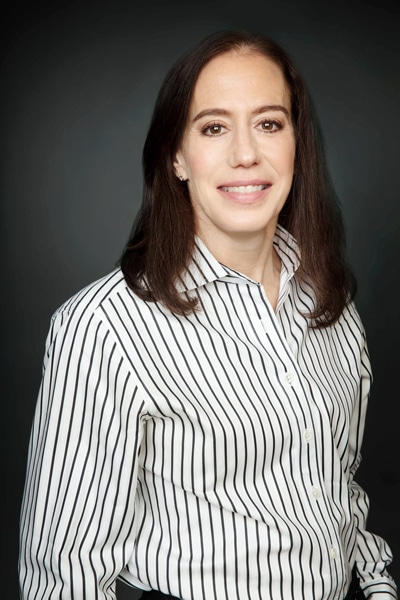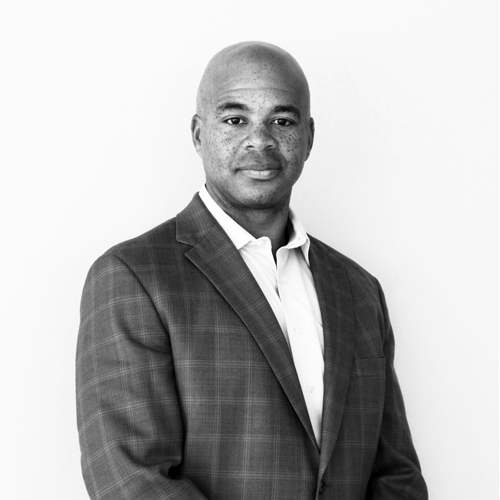
In October 2008, HBO found itself pulled into one of the highest-profile defamation cases in recent history, after a segment on child labor aired on one of its shows, Real Sports with Bryant Gumbel. Mitre, a worldwide soccer brand, had brought the lawsuit, claiming that the program’s footage of children stitching Mitre soccer balls for pennies was “dramatized,” “fictitious,” and even a “hoax.”
HBO’s legal team, including Stephanie Abrutyn, senior vice president and chief counsel of litigation, spent the next six and a half years working on the case, gathering evidence and depositions from the children, from stringers in India, and others and eventually going to court with Mitre in April 2015. The following month, at the end of the seventeen-day trial, after just five hours of deliberation, the jury returned a verdict in HBO’s favor. Mitre never appealed the case, either. It was a huge win for HBO, and it was particularly satisfying for Abrutyn, who’s spent her entire career standing in defense of creative expression, both factual and fictitious—and who’s learned more along the way about how exactly it’s created and distributed.
“There have to be checks and balances, and a lot of the people who threaten to sue the company I work for now over the content of our programming are trying to control the public narrative about them or their business,” she says. “That, I think, is dangerous. I think we’re better off being in a world where different people with different points of view can get them all out there.”
Her passion for such work began as an interest in politics at a young age. She remembers watching the Watergate hearings with her father, and she went to college thinking a career in Washington, DC, might be for her. But, after spending two summers working on Capitol Hill, she headed to the University of Pennsylvania Law School, no longer sure that politics was where she wanted to be. While there, she discovered media law, and the idea of protecting the words and works of writers and artists immediately appealed to her.
Fresh out of law school, Abrutyn joined Baker & Hostetler, where she did work for variety of news outlets, including a few large ones such as the New York Times. Her job largely consisted of vetting stories prior to publication to make sure they weren’t legally actionable and handling litigation for any outlet that needed to go to court because of a story. “I loved the high concept of doing something that I felt was contributing to the world as a whole,” she says, “and I also just found the process fascinating, going through all the materials that the journalist gathered in advance of putting out a news story.”
In 1996, she took her skills in-house by joining ABC, and in 1999 she moved over to the Tribune Company. As she continued to vet stories and litigate for the companies and the outlets they owned, though, she also began learning more about the actual business of media companies. For the Tribune Company properties she worked with, “I was the corporate lawyer, I was the advisor to senior management, I was the marketing lawyer, and I also did the newsroom advising and vetting as well as the litigation,” she says. “That gave me a real window on how the ability to publish intertwined with the business side of things.”
Since 2005, when she joined HBO as a litigator, she has continued to develop her knowledge of the media business as her company has transformed from a linear cable channel into a major streaming service. “I’ve learned a lot about technology and technology licensing,” she says. “I’ve also learned fundamentally how the television business operates and the distribution side of it.”
Today, she works with a team of twelve lawyers and support staff, which collaborates closely with a larger legal department consisting of marketing lawyers, programming lawyers, technology lawyers, transactional lawyers, and others. She also works with and directs outside counsel on how exactly to handle HBO’s cases, and she says they know she’s “not shy with her red pen.” While her own role has expanded significantly beyond media law into other aspects of HBO’s operations, much of her team’s work is still focused on the company’s content, protecting it from libel, invasion of privacy, and copyright infringement claims brought by other companies and individuals.
One recent case, in which coal magnate Robert Murray filed a defamation suit against HBO and others after being named in a segment on the HBO show Last Week Tonight with John Oliver, has made national headlines. Abrutyn is the lead in-house lawyer for the case, and she can’t say much about it while it’s still ongoing, but it’s clear that the work is representative of values she has always fought for and will continue to fight for.
“As we said in our brief, repeatedly, Murray and Murray Energy have engaged in ‘punitive litigation designed to chill constitutionally protected speech’ with which they disagree,” she says, “Philosophically and constitutionally, I love the fact that at the end of the day I can be proud of the products that HBO has out there in the ether, of our programming, of our shows, of our service, and defending programs’ right to present things the way they think is appropriate is something I find extremely gratifying.”
***
Kelley Drye & Warren LLP:
“Stephanie’s intelligence and fearlessness come through in every matter on which we work. Her dedication to legal excellence and to advancing HBO’s innovative programming is admirable.”
—Lee Brenner, Partner


